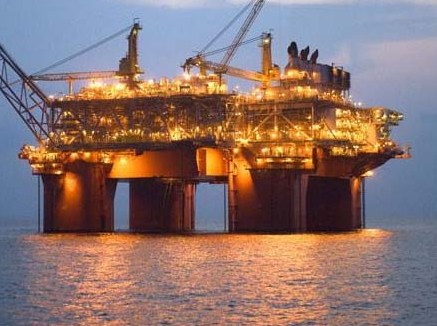The affected areas are Kolo Ama I and II, Akasa, Sanagana, Fish Town, Fropa, Ekeni, Ezetu and Lobia - all in Bayelsa State, and with a combined population of some 500,000.
“We and the Bayelsa Ministry of Health are asking for seven million naira [US$44,000] to enable us to make an initial dispatch of urgently needed relief items like water to the affected people and also carry out a damage impact assessment,” said Igwe Napoleon, the Bayelsa State branch secretary of the Nigeria Red Cross, on 3 February.
The state government said there had been a delay in the release of the money requested by the Red Cross due to political bickering and a sudden change in the state’s executive council.
Bukola Saraki, chairman of the Senate committee on environment and ecology, said on 20 January that his committee - in consultation with the Senator Emmanuel Paulker-led committee on petroleum (upstream) - had convened several meetings with senior Chevron Nigeria officials, the Nigerian National Oil Spill Detection and Response Agency and the Nigerian Department of Petroleum Resources to plan an initial impact assessment of the contamination and begin clean-up operations.
“We will also ensure that Chevron takes appropriate steps to contain the spill, remediate the impacted area and if there has been any loss as a result, ensure that adequate compensation is paid to the immediate community,” Saraki said.
On its website, Chevron said it had hired local community residents to monitor the shoreline along the beach but by 2 February there had not been any reports of crude oil on the beaches. In addition, it has moved food and other supplies to the affected communities.
Gas inhalation
However, communities in Bayelsa State say they are feeling the effects of the spillage - inhaling gases from the burning rig, and having to put up with polluted drinking water and fish.
“There is evidence that fish have died and that is the mainstay of the people,” said Saraki.
Preye Brown, branch chairman of the National Youth Council of Nigeria, who lives in the area, said the entire swamp forest was now covered by polluted water, affecting fish breeding grounds.
“Therefore, I am calling for the government to carry out temporary relocation of the indigenes until everything subsides. The only source of drinking water in Kolo Ama and neighbouring communities is now polluted; the indigenes have to depend on sachet water which is expensive,” he said.
“A fire started aboard the shallow-water jack-up drilling rig KS Endeavor. The rig was drilling a natural gas exploration well approximately 10 kilometres off the coast of Nigeria and in roughly 12 metres of water,” Chevron said on 2 February, adding that the cause of the incident was being investigated.
Even though no one has been reported hospitalized as a result of the fire so far, said Igwe Napoleon, “there are cases of coughing and eye irritation all over the area, which is a result of the gases released into the air by the inferno.”
hu/oss/cb
This article was produced by IRIN News while it was part of the United Nations Office for the Coordination of Humanitarian Affairs. Please send queries on copyright or liability to the UN. For more information: https://shop.un.org/rights-permissions





